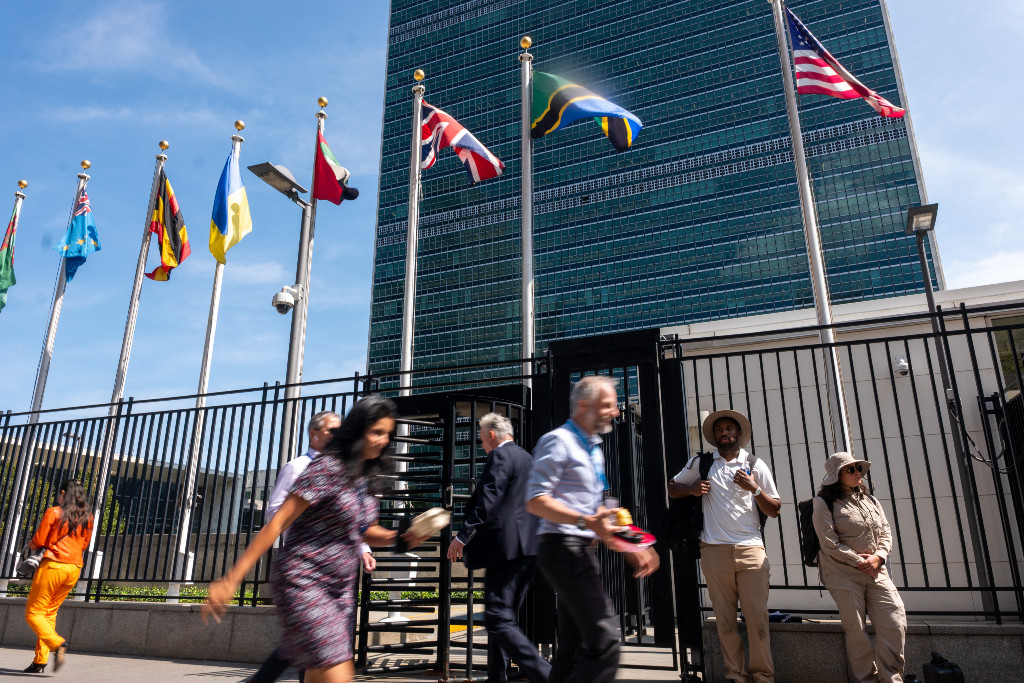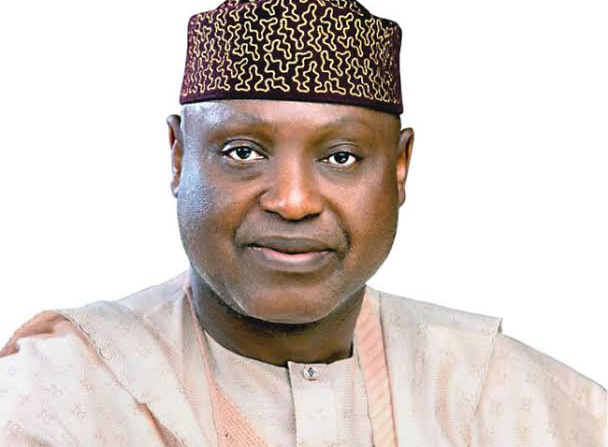
The annual diplomatic jamboree that is the United Nations General Assembly’s “high-level week” is approaching, and U.S. participation this year will unfold in the shadow of a U.S. multilateral retreat. The Trump administration has announced the U.S. withdrawal from the World Health Organization, the Paris climate agreement, and the United Nations Educational, Scientific and Cultural Organization — all institutions that the United States was instrumental in building. The $9 billion rescission legislation cutting foreign aid and public broadcasting that President Donald Trump signed into law this summer eliminated more than $1 billion in U.S. funding to multilateral institutions. His administration may defund the Organisation for Economic Co-operation and Development, and has hinted at cutbacks in contributions to other multilateral institutions, including the World Bank and the International Labor Organization. It has threatened to leave the International Energy Agency for its renewable energy-friendly findings and statistics, withdrew from the U.N. Human Rights Council, and has refused to participate in the council’s Universal Periodic Review. Trump’s blitzkrieg trade policy has sapped any remaining credibility from the World Trade Organization.
It is tempting to see multilateralism — gatherings and structures of large groups of countries seeking agreement on rules, norms, frameworks, and outcomes — as a courtesy to allies and weaker countries. But the truth is the U.S. embrace of multilateralism was originally designed, and for decades has served, as a key tool for protecting the interests of Americans and projecting U.S. power. Multilateral institutions may seem distant and abstract to most Americans, but these venues to resolve common problems are crucial to American livelihoods at the local level. American consumers and producers, and communities vulnerable to disasters and the spread of diseases, bear the greatest burden of any multilateral retreat. The vacuum that it creates poses many risks for Americans, including that China and other competitors will be all too happy to fill the void.
And few can understand and articulate the grassroots impact of such a vacuum better than state and local leaders across the United States. These are the leaders closest to communities, expected to deliver on issues ranging from health to energy to climate resilience, and to innovate when they confront complex problems. They see the impact of a multilateral retreat firsthand, but they can also do something about it. Local leaders from both political parties are starting to fill in where Washington is stepping back, and they have more opportunities at convenings like the U.N. General Assembly’s high-level week Sept. 22-26, when national leaders, civil society activists, and others from U.N. member countries gather in New York in a concentrated flurry of meetings and conferences.
American governors and mayors should show up in New York and in other places where multilateral conversations are taking place. They should weigh in on key foreign policy issues, such as Russia’s attack on Ukrainian sovereignty (as mayors recently did, reiterating their support for their Ukrainian counterparts whose cities are under siege). Through multilateral engagement, American local leaders can demonstrate the resilience of U.S. democracy — which thrives on local autonomy and innovation — showcase how they produce results, and learn from foreign counterparts. Multilateral institutions, in turn, would be wise to expand their outreach across the United States and build new mechanisms for subnational participation.
Global Institutions, Local Benefits
Multilateralism is not a shackle around U.S. autonomy, as its opponents claim, even if it needs reform. Rather, U.S. local communities benefit from multilateral institutions in a variety of ways, starting with how they create a stable environment and make powerful actors more predictable. The World Trade Organization, and China’s inclusion in it, is a case in point. China’s economic rise has not been benign, but the impact on American jobs and production is more manageable within a global system that channels conflict through rules, rather than allowing a major power to evolve entirely outside of them.
For instance, one academic study found that in 2018, during the first year of the previous China-U.S. trade war, when prices rose 20 percent as a result, 19 percentage points of that was passed on to American consumers. When this happens, less well-off Americans spend more of their income on consumption, and the economic uncertainty causes companies to hold off hiring or consider layoffs. Meanwhile, large traders or speculators make money off market uncertainty through sophisticated hedging tools. By kneecapping multilateral trade rules, the Trump administration has put those rules up for grabs, undermined predictability, and hurt American workers.
Multilateral institutions also minimize free-riding by ensuring that all participants face obligations. When participation is broad and institutionalized, the U.S. gains a cost-effective means of monitoring countries’ behavior. Multilateral negotiations require countries to reveal their preferences, constraints, and strategies, which gives the U.S. a clearer vantage point for understanding how to navigate the complexity of global politics in service of its national interest. This transparency makes U.S. policy more efficient, especially when pursuing economic or climate security goals. By dismantling the existing order, the Trump administration is giving up valuable mechanisms of accountability and compliance.
The 2015 Paris climate agreement, for instance, created that accountability and offered significant flexibility and benefits for American workers. The agreement operates on a “bottom-up” approach, allowing each country to set its own Nationally Determined Contributions to reduce greenhouse gases and design its own plan for adapting to the challenges of climate change, such as stronger floods or droughts. This structure has enabled the U.S. to define its climate goals in alignment with domestic priorities while also encouraging major emitters like China and India to commit to their own emissions reductions. By engaging these countries in a collective effort to mitigate climate change, the U.S. has, until now, shared the responsibility of global emissions reductions, created new green jobs, and strengthened local resilience to the impacts of climate change. By one estimate in April of this year, the Trump administration’s pivot away from a clean energy agenda already had cost 20,000 jobs in the U.S., with another 40,000 at risk because of all the canceled, delayed, or threatened projects.
The multilateral system also provides a venue for countries to coordinate efforts and share information in the midst of collective challenges. Is the World Health Organization (WHO) a perfect institution? By no means. But during the Covid-19 pandemic, which went from local to global at an astonishing speed, the WHO created a common platform for data- and information-sharing about the spread of the virus. Since then, the WHO has adopted a new pandemic treaty that seeks to advance more equitable responses to future pandemics. When the U.S. shuns these shared efforts, it forgoes the opportunity to shape outcomes — such as during the next pandemic — which will affect all Americans and their health and economic well-being.
Multilateral institutions are also repositories of expertise — an increasingly valuable commodity in Trump’s fact-and-evidence-averse administration. Institutions like the WHO are home to renowned scientists and other experts drawn from around the globe. With the Trump administration sidelining and dismantling domestic expertise — including through attacks on universities and the Centers for Disease Control and Prevention — the technocratic skills found in multilateral institutions could become increasingly valuable to local leaders and all Americans.
Ironically, in much of the world, the multilateral system has been criticized for being too heavily weighted toward U.S. preferences, while the critique in the United States is that it does too little for Americans. Multilateral institutions may be rules-based, but they are not power-blind — the reality is that U.S. influence within these frameworks allows it to align institutional outcomes with local and national priorities, while still benefiting from the predictability and legitimacy that multilateralism provides. All this plays to the benefit of American communities.
Local Leaders’ Multilateral Moment
What can be done to counter Trump’s multilateral retreat? We believe that local elected leaders, such as mayors and governors, should be increasingly vocal in multilateral forums. They understand the economic and social needs of their communities better than Washington and can be effective communicators of Americans’ views and interests. When California Governor Gavin Newsom called on international partners not to impose tariffs on Californian agricultural and manufacturing exports, he was representing local interests on the global stage — he understood that the federal government’s imposition of tariffs was going to incite retaliation that hurt Californians.
It is easy to dismiss Newsom’s call as political jockeying — a charismatic Democrat looking to challenge a Republican president. But local leaders on both sides of the aisle vouch for the importance of playing by international trade rules: earlier this year, the bipartisan U.S. Conference of Mayors, which represents more than 1,000 cities, issued a series of sharp statements warning against a trade war and in support of the U.S.-Mexico-Canada Agreement on trade that Trump’s first-term administration had itself orchestrated. If trade protectionism on the federal level intends to protect American jobs in American towns, what better way to achieve that goal than to hear from U.S. local leaders?
There is a growing tradition of local leaders participating in global platforms to achieve better outcomes for their constituents. When Trump pulled the United States out of the Paris climate agreement in his first term, organizations like America Is All In, C40, and the U.S. Climate Alliance became venues for cities and states to maintain their commitments to the Paris agreement goals. Bipartisan groups of U.S. elected officials have engaged in global climate negotiations, knowing very well that emissions in other parts of the world affect the ability of their cities and states to withstand the impacts of climate change. For instance, the Mississippi River Cities and Towns Initiative, which encompasses more than 100 cities along the Mississippi River, signed a Memorandum of Common Purpose with India’s River Cities Alliance during the global climate negotiations in Dubai in 2023 (known as COP28). The diverse towns that depend on the mighty Mississippi are battling the intensifying effects of climate change that make food production more vulnerable, just like their counterparts in India.
There are additional examples of local leaders reaching beyond U.S. borders to learn from peers and respond to collective problems. During the pandemic, mayors and governors from 42 global cities, including several from the United States, gathered at the Cities Against COVID-19 Global Summit, organized by the Seoul Metropolitan Government in June 2020, and committed to creating a global alliance focused on strengthening how cities respond to future infectious-disease outbreaks.
American cities and states also are signing on to other, broader multilateral frameworks to advance citizens’ wellbeing: both Los Angeles and Hawaii are tracking their progress in achieving the U.N. Sustainable Development Goals, like many of their global counterparts. New York City was active in shaping the U.N. Pact for the Future, part of the 2024 Summit of the Future, a series of U.N. declarations and action plans that aim to unite diverse countries on collective security and economic challenges. While both the Summit and the Pact have been criticized for lack of substance, incorporating local governments into an institution predicated upon inter-State diplomacy acknowledged the innovations coming from the local level. The last meeting of the U.N. General Assembly also featured a gathering of the Global Task Force of Local and Regional Governments, a coalition of the major international networks of local governments.
As global problems localize, and local problems globalize, these multilateral gatherings create opportunities for local leaders to discuss solutions with both peers and national-level leaders. In an ideal world, local voices from the United States complement the federal government in multilateral settings, not always aligned but at least agreeing on the value of the multilateral dialogue. But when the federal government turns against multilateralism, local leaders can keep their communities engaged. The template created when Trump first pulled the United States from the Paris climate agreement in 2017 — localities staying engaged and committing themselves to multilateral standards and practices — can be replicated in health, democracy protection, and other fields.
One place to start is human rights: if the Trump administration refuses to issue a report as part of the U.N. Human Rights Council’s Universal Periodic Review process (through which countries report on their own human rights performance and then are assessed by their peers), American cities and states should write their own, candidly assessing the state of human rights in the United States. Indeed, nearly 150 state and local officials recently wrote to the Council asking that it continue with the review of the United States.
Another opportunity for state and local representatives to fill a U.S. gap in multilateral engagement is in reforming the rules governing global trade: local leaders can ask their communities what fair trade looks like to them, collaborate to design reforms, and share findings and proposals in multilateral settings. Just about everyone agrees reforms to many multilateral institutions, to make them more nimble and efficient, are overdue; greater involvement of local leaders, from the United States and elsewhere, could add a dose of new energy and ideas.
Indeed, because multilateral institutions are less effective when the United States is entirely absent, leaders of these organizations should increase engagement with diverse (ideologically, economically, and geographically) networks of local American leaders, such as the U.S. Conference of Mayors, and consider their views. They can do more to create pathways for American mayors and governors — and their counterparts in other countries — to get involved. When formal membership is limited to national governments, multilateral institutions can create informal parallel tracks for local leaders, so that their views are collected and reflected in formal proceedings. In areas such as transportation and energy policy, where many authorities rest with local officials, multilateral outreach to elicit and integrate their views may prove especially productive.
American public opinion, it should be noted, generally supports multilateralism. For instance, 60 percent of Americans express a positive view of NATO, and 69 percent support maintaining the U.S. commitment to the Paris climate agreement. By engaging multilateral institutions, local leaders are aligning with their constituents’ preferences. Moreover, while Americans generally have declining trust in national political institutions, they hold local governments in higher regard. So it makes sense to elevate local voices in multilateral settings, while building local leaders’ capacity for that type of engagement.
The Trump administration’s attack on multilateral institutions stems both from a perception that they no longer serve American interests, and a desire to turn Washington conventional foreign policy wisdom on its head. While critiques of multilateral institutions are not new and span administrations of both parties, the current approach signals not a desire to reform, but a rush to dismantle, throwing the baby out with the bath water. In the face of Trump’s retreat, American governors and mayors should double down on multilateral engagement, push for responsible reform, and cushion the blow of the administration’s short-sighted policy.



